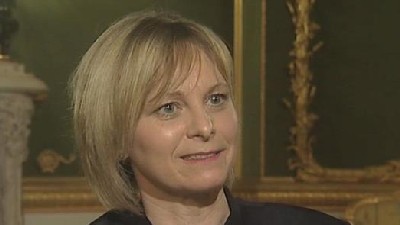 Go to main content
Go to main content
Archive Website of the UK government
Please note that this website has a UK government accesskeys system.
Main menu
Page menu
Government, citizens and rights

Julie Summerell on public appointments
Julie Summerell explains how public appointees can contribute and what makes a good board member.
Can't see the video?

To play this video you need Adobe Flash Player version 9 or higher on your computer and have JavaScript enabled on your browser. Our Help with video files page gives advice if you are unsure how to do this. The Flash software is free.
Text version
Public appointments online
See what positions are available or register to receive alerts
What was your first experience of applying for a public appointment?
Julie Summerell, Non-Executive Board Member for the Football Licensing Authority:
"I honestly wasn't even aware that the public were appointed for those sorts of jobs: it was a completely new thing to me. And I looked it up, and I thought, 'well, I'm not sure about this' - because when I looked at the other people on the board, they were Sir this and OBE that, and I thought, 'hang on, why would they want me?'. But then I started digging down a bit further to see some of the skills they were looking for. I realised then that the experience I had would actually match very well with what they were looking for. So I thought, 'well, I'll give it a go'."
What advice would you give someone considering a public appointment?
"The first thing is to look at something that interests you, because that will come across in the interview. And I think that the other things that are missing, people will take less notice of because they know that you're passionate about what you're applying for. The other thing is that just because you haven't had board experience, it doesn't mean that you wouldn't be any good at the job - for example, the work that I've done has been helping people to prepare for board meetings. So in some ways I was aware of what went on in a board, I'd just never sat on one."
Why are diverse boards important?
"I think if it's just the same people who are applying, it's just the same opinions, the same views, they don't really see how they're viewed outside of the organisation they're in. If you have that diversity of people coming in they'll say, 'well actually, we don't see it that way - as an outsider, I consider that what you were doing in this area was wrong' or 'we perceive you as being stuffy' or whatever it is. I think boards have to represent the real world, because that's who they are representing at the end of the day - that's who it's for."
What makes a good board member?
"You have to be empathetic to the people in the organisation, particularly the chief executive - I've seen within some of the board meetings I've had, this thing of wanting to control the organisation, and that isn't what you're there for. I almost see it sometimes as a parental role: you'd love to tell them how to do it exactly the way that you'd like them to do it, but actually they're not going to learn from that, and that isn't your role. So for me, it's an empathetic role; it's a listening role; it's problem-solving sometimes: you're there to provide something a little bit more creative when the chief executives have had problems sorting it out for themselves - this is 'I have a problem, what can I do about this'. But also, to use the skills that you have outside the organisation, to look at things in a slightly different way that they've maybe not thought of before."
 Facebook
Facebook Twitter
Twitter StumbleUpon
StumbleUpon Delicious
Delicious Reddit
Reddit

